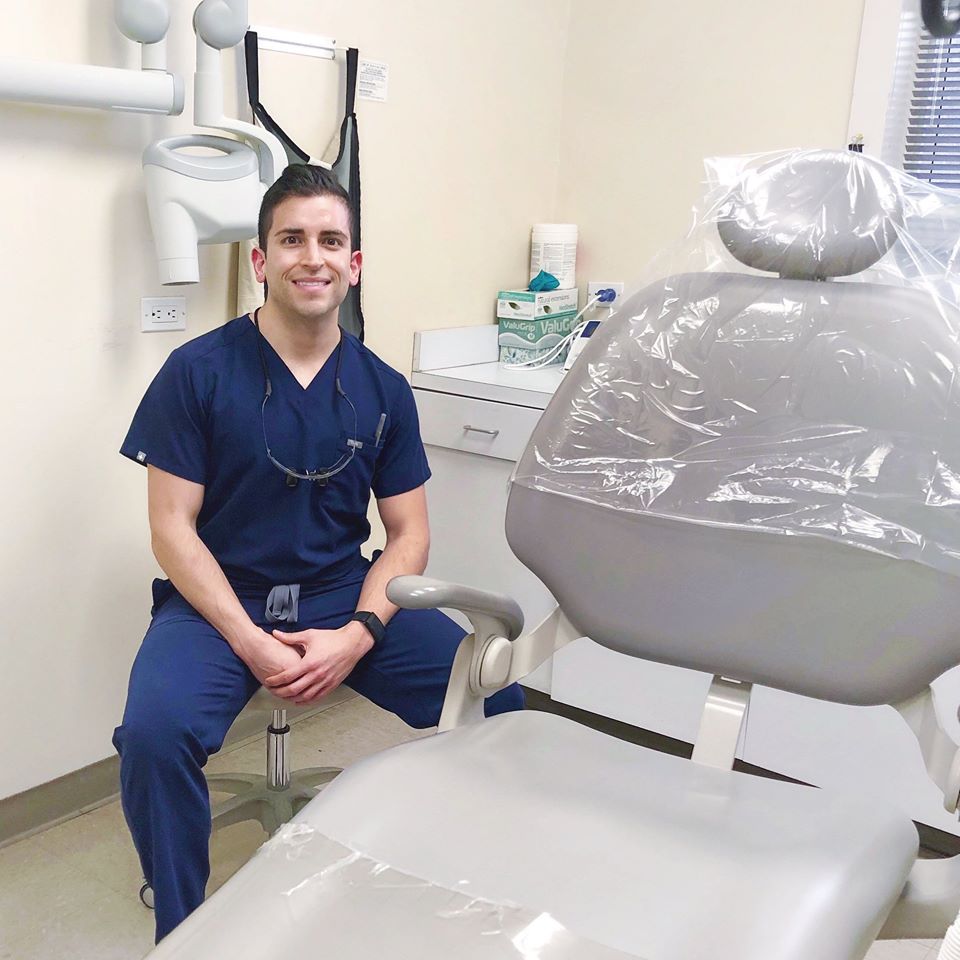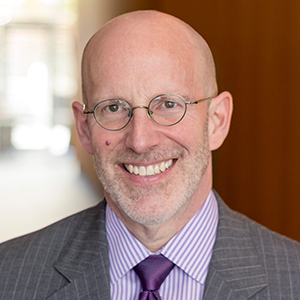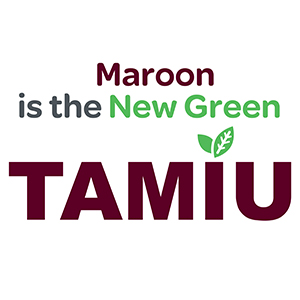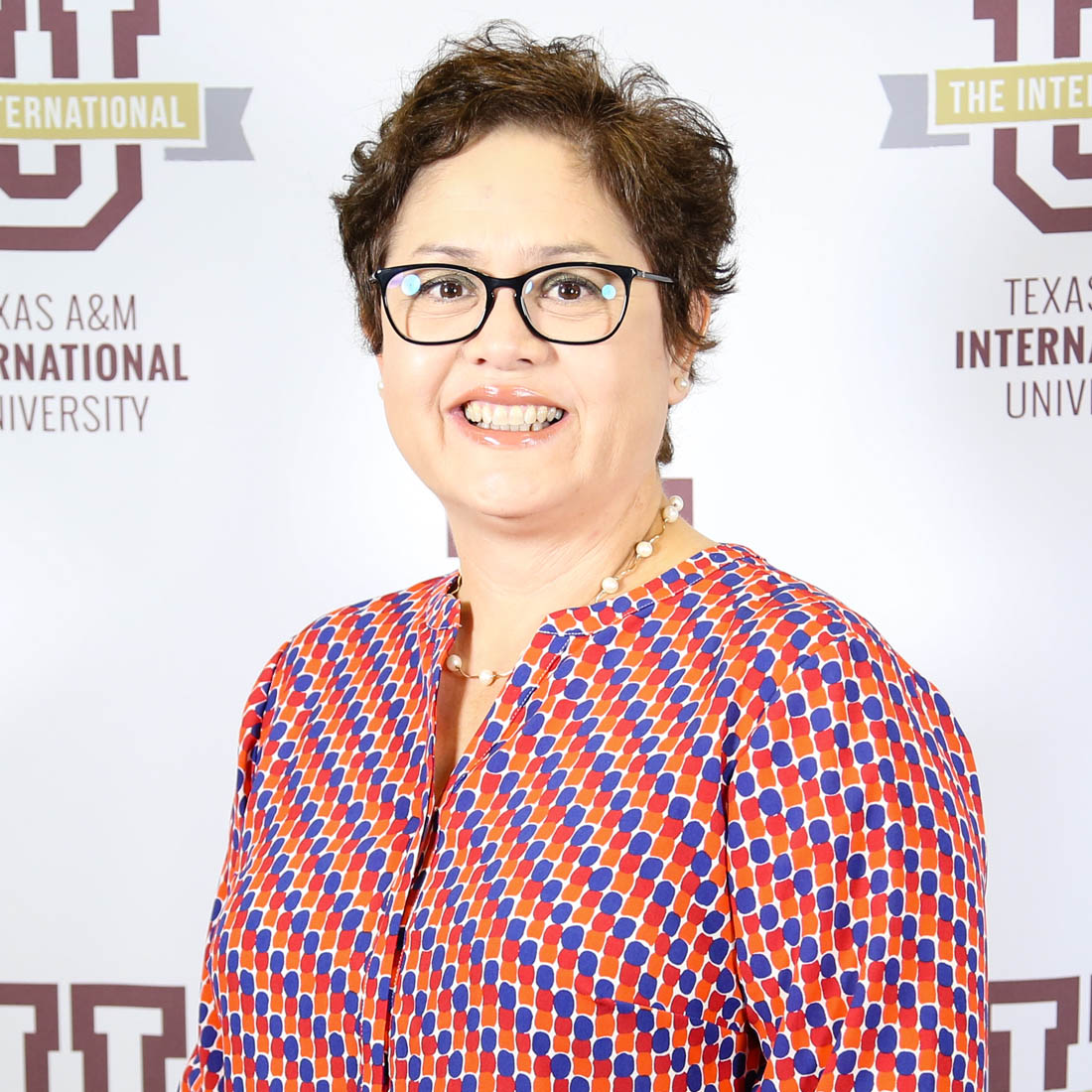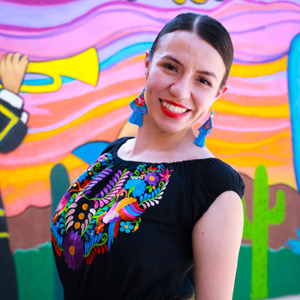Dustdevil Diversity Spotlight: Dr. Alex Barrera
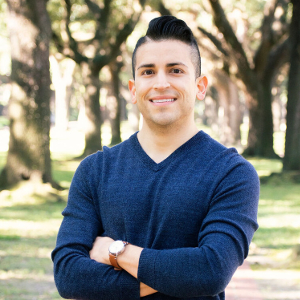
This is part of a series of interviews highlighting diversity at TAMIU. On the occasion of Pride Month, this interview features Dr. Alex Barrera, General Dentist at Avenue 360 Health and Wellness in Houston. He earned his BA in Biology and minor in Anthropology from TAMIU in 2013. He subsequently earned his graduate degree in Dentistry from the University of Texas School of Dentistry at Houston.
Advocating for Better Healthcare Access by Health Disparity Populations
Tell us about yourself. Where are you originally from and why you chose to attend TAMIU.
I was born and raised in Laredo and graduated from J. B. Alexander High School. I participated in the magnet program for health and sciences where I was introduced to TAMIU and its desire to have more students enter professional graduate programs in health.
Tell us what you have been up to since graduating from TAMIU.
After graduating TAMIU, I moved to Houston to pursue my dental education. Throughout dental school, I began to dive into the world of public health and volunteerism, and gained a passion for helping those populations who lack access to healthcare due to social and economic determinants. I began to work with organizations that shared my values, such as the Hispanic Dental Association and Doctors for Change.
After graduating dental school, I decided to stay and work in the Houston area and increased my involvement in non-profit health organizations. I now hold various positions in organizations including the Hispanic Dental Association, Greater Houston Dental Association, Doctors for Change, Institute for Diversity in Leadership, and the Houston Equality Dental Network.
Can you share with us the story of your advocacy work within the LGBTQ+ community and how it has impacted the delivery of dental care to patients?
The National Institute on Minority Health and Health Disparities has identified the LGBTQ community as a “health disparity population”, due primarily to lowered access to health care. Unfortunately, some of this comes down to LGBTQ+ patients avoiding medical treatment due to past discrimination and fear of stigma. When LGBTQ people belong to other marginalized groups, such as being a person of color or having a disability, it becomes more and more difficult to find accessible, non-biased care.
Because of these disparities, I formed the Houston Equality Dental Network (HEDN), an organized dentistry group specifically focusing on LGBTQ+ dentists and patients. HEDN is the first and only non-profit dental organization for this community. Within a span of 6 months, our organization has hosted social events, created educational material, spread awareness, and established an online platform for queer dentists to share their stories and experiences. We have also worked with various local organizations to provide queer people with help accessing oral health care and referring to professionals that can help.
How do you feel your contributions impact the community and the world around you?
I think I’ve shown that I’m unafraid. The contributions that I’ve done through my service work has helped the LGBTQ+ community better obtain health care, but more importantly, the visibility has helped carve a path for LGBTQ+ youth who can now more easily envision a world where they are equal and happy.
Can you share what some of your hobbies are?
Reading, cooking, Crossfit, and yoga.
Who has been your greatest inspiration and why?
One of my favorite quotes is by Isaac Newton, "If I have seen further it is by standing on the shoulders of Giants." I feel lucky to have had many good mentors in my life who have helped me discover my passion of helping others. One of my greatest inspirations has been my mentor and friend, Dr. Ricardo Mendoza, previous president of the Hispanic Dental Association. He taught me that it is possible to be my authentic self while also making a difference in the world.
Tell us what you are doing today academically, career or life-wise and what your future plans are.
Currently working in public health focusing on medically vulnerable populations. I hope to continue providing care as a dentist, but also continue advocacy work and incorporating public service and education more into my career. My goals in my work are to increase health access and awareness to vulnerable populations and to help educate dentists and students on how to better serve these communities.
How do you think people in the LGBTQ+ community can continue to increase their visibility and impact here and in the world?
So much work has been done the past several decades on advancing LGBTQ+ equality and awareness, however, we still continue to see patterns of hate and discrimination throughout the United States. Many people assume that after marriage equality was passed, the goal was reached and the queer community is now “equal.” Unfortunately, this is not the case. In many states, gay and trans individuals can still be fired from their jobs or loose housing due to their sexual orientation or gender identity.
Additionally, the subconscious bias that is so ingrained in most of us continually affects the way many people, especially health providers, treat LGBTQ+ individuals. An important step of change is visibility, and those in the LGBTQ+ community can work towards this by simply living authentically. While this may be difficult for many, we are fortunate to have so many resources and opportunities for connection via social media, where LGBTQ+ youth can find community and a sense of belonging.
Why do you think diversity is important at university campuses, the workplace, and overall?
Specific to health care, increasing diversity among healthcare professionals is important because it is associated with benefits including improved access to care, greater patient compliance, better patient-doctor communication, and improved educational experiences for students. Having more healthcare professionals with different backgrounds will help to provide care in medically underserved areas and will help increase cultural competency amongst healthcare as a whole.
